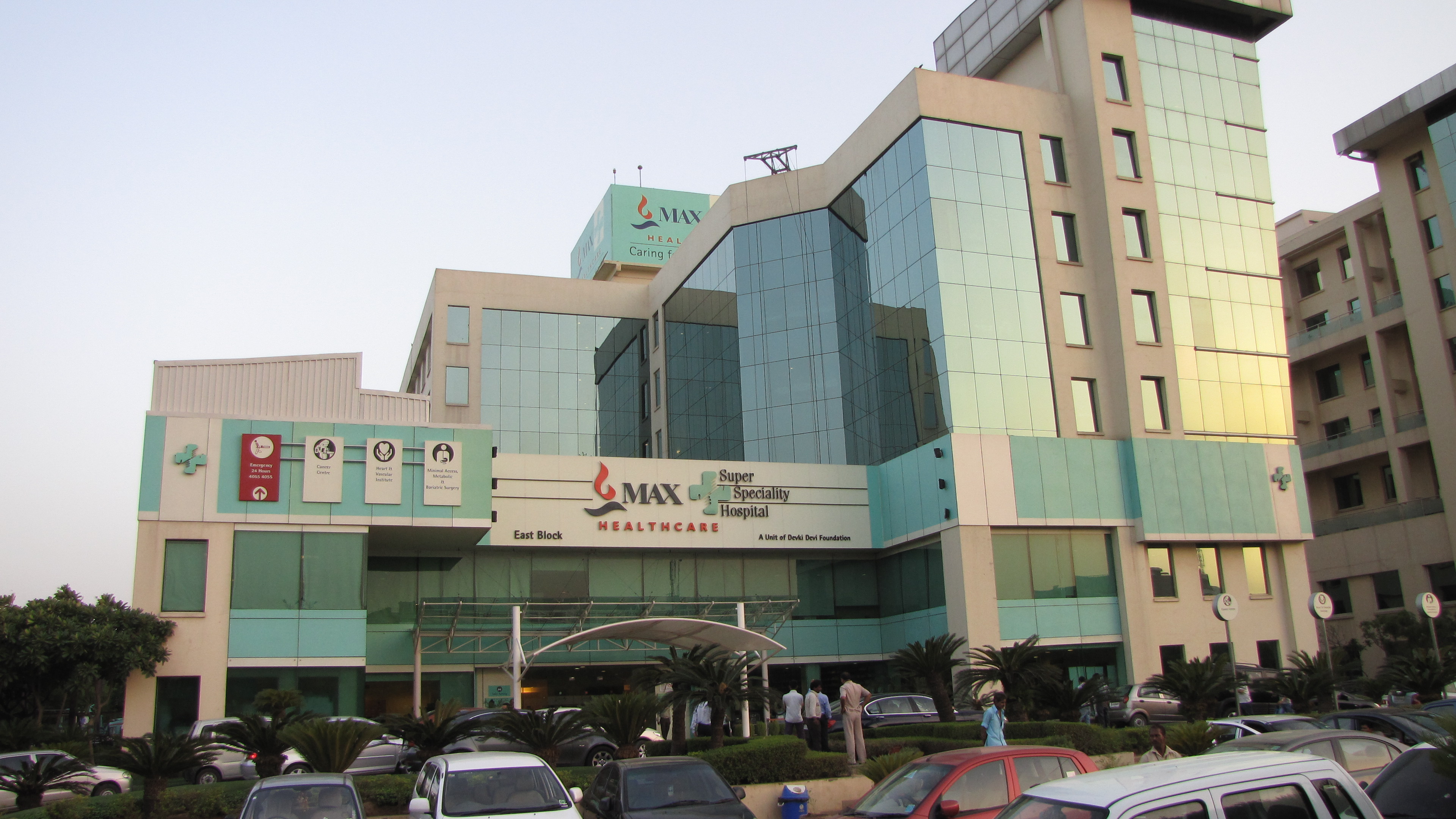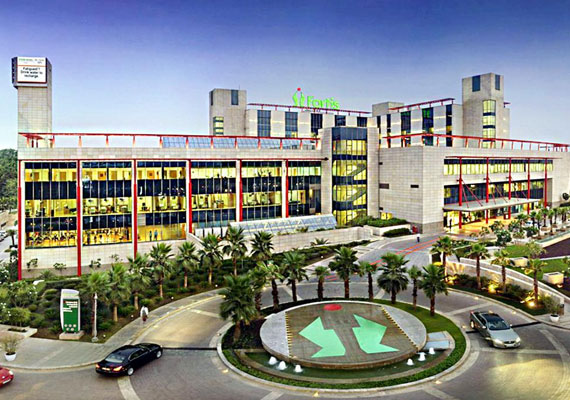
Bone Marrow Transplant for AML in India: What to Expect
01 Dec, 2023
 Healthtrip Team
Healthtrip TeamA Glimpse into Acute Myeloid Leukemia (AML) Acute Myeloid Leukemia (AML) is a rapid-growing form of cancer that affects the blood and bone marrow. In India, AML accounts for a significant portion of adult leukemia cases, making its treatment a crucial aspect of oncology care. The disease is marked by the rapid proliferation of abnormal white blood cells, hindering the production of normal blood cells.
The Crucial Role of Bone Marrow Transplant in AML Treatment For many AML patients, a bone marrow transplant (BMT) is not just a treatment option; it's a potential lifesaver. This procedure replaces the diseased bone marrow with healthy marrow, either from the patient or a donor, and plays a pivotal role in the fight against AML.
Transform Your Beauty, Boost Your Confidence
Find the right cosmetic procedure for your needs.

We specialize in a wide range of cosmetic procedures

The Relevance of BMT in India In India, advancements in healthcare have made BMT more accessible and successful. Despite this progress, challenges such as finding suitable donors and managing costs remain prevalent.
AML and Bone Marrow Transplant
What is Acute Myeloid Leukemia? AML is a fast-developing form of cancer that originates in the bone marrow but quickly moves into the blood. Symptoms include fatigue, fever, loss of appetite, and easy bruising. In India, the rising incidence of AML demands attention, with research indicating unique genetic and environmental factors at play.
Bone Marrow Transplant: A Ray of Hope A bone marrow transplant, essential in AML treatment, is of two types: Autologous (using the patient’s own stem cells) and Allogeneic (using cells from a donor). The choice depends on the patient's condition and donor availability.
BMT's Mechanism in Combating AML In AML treatment, BMT aims to replace the malfunctioning marrow with healthy cells. This procedure, while complex, offers a chance for a cure or long-term remission.
Most popular procedures in India
Total Hip Replacemen
Upto 80% off
90% Rated
Satisfactory

Total Hip Replacemen
Upto 80% off
90% Rated
Satisfactory

Total Hip Replacemen
Upto 80% off
90% Rated
Satisfactory

ANGIOGRAM
Upto 80% off
90% Rated
Satisfactory

ASD Closure
Upto 80% off
90% Rated
Satisfactory

Preparing for a Bone Marrow Transplant
Who Qualifies for a BMT in AML?
The eligibility for a BMT in AML patients includes factors like age, overall health, and disease stage. A comprehensive evaluation determines if a BMT is the best course of action.
Finding a Suitable Donor in India
In India, finding a matching donor is a major hurdle. While family members are often the first choice, only about 30% of patients find a match within the family. This leads many to rely on donor registries, which are growing in India but still face challenges in terms of diversity and size.
Pre-Transplant Journey: Tests and Psychological Preparations Pre-transplant evaluations are thorough, including physical exams, blood tests, and psychological assessments. Equally important is preparing patients and their families mentally and emotionally for the journey ahead.
The Procedure in Detail
A Step-by-Step Look at the Transplant Process
- Conditioning Regimen: Before the transplant, patients undergo a conditioning regimen, which typically involves chemotherapy, with or without radiation, to destroy cancerous cells and suppress the immune system.
- Stem Cell Infusion: After conditioning, stem cells are infused into the patient's bloodstream. This procedure is similar to a blood transfusion.
- Engraftment: The infused stem cells travel to the bone marrow and begin producing new blood cells, a process known as engraftment, which can take several weeks.
- Post-Transplant Monitoring: Patients are closely monitored for complications, including infections and graft-versus-host disease (GVHD).
Role of Specialized Hospitals and teams in India
- Specialized hospitals in India are equipped with dedicated BMT units, state-of-the-art facilities, and advanced technology.
- These centers adhere to international standards, offering high-quality care.
- They often have specialized teams, including hematologists, oncologists, transplant specialists, nurses, and support staff.
1.Max Super Speciality Hospital, Saket, Delhi:

- Location: Press Enclave Road, Mandir Marg, Saket, New Delhi, Delhi 110017, India
- Max Smart Super Speciality Hospital, Saket, is a 250-bed facility affiliated with Gujarmal Modi Hospital & Research Centre for Medical Sciences. It boasts 12 high-end modular operation theatres, an emergency resuscitation and observation unit, 72 critical care beds, 18 HDU beds, a dedicated endoscopy unit, and an advanced dialysis unit. The hospital is equipped with cutting-edge medical technology, including a 256 Slice CT Angio, 3.0 Tesla digital broadband MRI, Cath Labs with electrophysiology navigation, and a flat panel C-Arm detector.
- Max Smart Super Speciality Hospital offers a wide range of medical services in various disciplines, including Cardiac Sciences, Orthopaedics, Urology, Neurology, Pediatrics, Obstetrics, and Gynecology. It is recognized as one of the best hospitals in Delhi.
- The hospital has a team of over 300 leading specialist doctors and a dedicated nursing staff. They utilize state-of-the-art medical tools to provide the highest standard of medical care to patients, from admission to discharge.
- Max Smart Super Speciality Hospital, Saket, is a regional hub for complex medical procedures, including neurovascular interventions, targeted cancer treatments, heart surgeries, orthopedic surgeries, liver and kidney transplants, and fertility treatments.
2. Artemis Hospitals, Gurgaon:

- Location: Situated in Gurgaon, India
- Size: Located on a sprawling 9-acre campus.
- Bed Capacity: Over 400 beds.
- Accreditations: The first JCI (Joint Commission International) and NABH (National Accreditation Board for Hospitals & Healthcare Providers) accredited hospital in Gurgaon.
- Advanced Infrastructure: Designed as one of the most advanced hospitals in India.
- Medical Expertise: Provides a wide range of advanced medical and surgical interventions.
- Comprehensive Services: Offers a comprehensive mix of inpatient and outpatient services.
- Technology: Equipped with modern technology, enhancing healthcare standards.
- Research-Oriented Practices: Medical practices and procedures are research-oriented and benchmarked against global standards.
- Recognized Excellence: Received the 'Asia Pacific Hand Hygiene Excellence Award' by WHO in 2011.
- Specialties: Excelling in various medical fields, including cardiology, CTVS (Cardiothoracic and Vascular Surgery), neurology, neurosurgery, neuro-interventional, oncology, surgical oncology, orthopedics, spine surgery, organ transplants, general surgery, emergency care, and women & child care.
3.Kokilaben Dhirubhai Ambani Hospital, Mumbai:
- Rao Saheb, Achutrao Patwardhan Marg, Four Bungalows, Andheri West, Mumbai, Maharashtra 400053
- The hospital has over 410 doctors from all departments and has performed 211 liver transplants.
- It is the only hospital in Mumbai with all 4 coveted accreditations.
- The hospital has 12,298+ complex cancer surgeries and 1,776+ robotic surgeries to its credit.
- The hospital provides complete treatments and surgeries for all kinds of diseases.
- The hospital has the first 3-room intra-operative MRI suite (IMRIS) in Asia.
- The hospital has Asia’s first EDGE Radiosurgery system from Varian Medical Systems.
- The hospital has India’s 1st Spine Surgery Suite featuring the O-arm.
- The hospital has a 750-bed multi-speciality facility.
- The hospital has boasted of many firsts not only in India but also in Asia.
- The hospital courted controversy in 2014 when it offered incentives to doctors for referring patients. It later apologized to the Maharashtra Medical Council.
4. Fortis Memorial Research Institute, Gurgaon:

- Location: Sector - 44, Opposite HUDA City Centre, Gurgaon, Haryana - 122002, India.
- Type: Multi-super specialty, quaternary care hospital.
- Faculty: Enjoys an enviable international faculty.
- Clinicians: Comprises reputed clinicians, including super-sub-specialists and specialty nurses.
- Technology: Equipped with cutting-edge medical technology.
- Capacity: Spacious 11-acre campus with 1000 beds.
- Quality and Safety: Has undergone a thorough on-site review of the quality and safety of care.
- International Standards: Committed to continuously meeting rigorous international standards.
- Specialties: Unmatched in the field of Neurosciences, Oncology, Renal Sciences, Orthopedics, Cardiac Sciences, and Obstetrics And Gynecology.
- Flagship Hospital: Fortis Memorial Research Institute is a flagship hospital of Fortis Healthcare, one of the top healthcare providers in the country.
Post-Transplant Care and Recovery
Immediate Post-Transplant Care
- Isolation: To prevent infections, patients may be kept in a sterile environment, as their immune systems are very weak post-transplant.
- Infection Prevention: Rigorous measures are taken to prevent infections, including the use of HEPA filters, antibiotics, and antifungals.
Long-Term Recovery Process
- Monitoring for GVHD: Regular check-ups are crucial for detecting and managing GVHD, a condition where the donor cells attack the patient’s body.
- Regular Check-Ups: Patients need ongoing monitoring, which includes blood tests, imaging, and consultations to track recovery and spot any signs of relapse.
Lifestyle Changes and Rehabilitation
- Diet and Nutrition: Post-transplant, a balanced diet is vital for recovery. Dietitians often create personalized nutrition plans.
- Physical Rehabilitation: Physical therapy helps in regaining strength and managing fatigue.
- Psychological Support: Counseling and support groups can be beneficial in coping with the emotional and psychological impacts of the transplant.
In summary, the journey of bone marrow transplant for Acute Myeloid Leukemia (AML) in India is marked by advanced medical treatments and comprehensive care. From meticulous preparation and detailed procedures to attentive post-transplant care, India's healthcare system demonstrates significant strides in combating AML. These advancements, coupled with the growing network of specialized facilities and supportive resources, offer a beacon of hope for patients, underscoring a future where overcoming AML is increasingly within reach.
Wellness Treatment
Give yourself the time to relax
Lowest Prices Guaranteed!

Lowest Prices Guaranteed!





